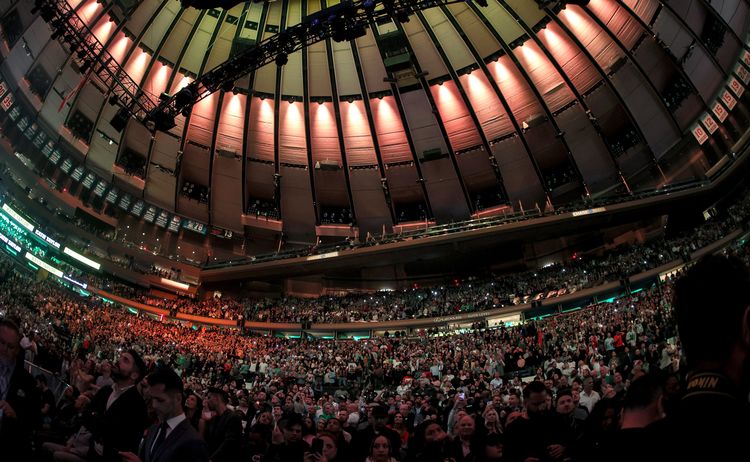Traditional Music / By Daniel Neely
I’ve been exploring trends in traditional music over the last couple weeks. Michael Walsh’s “Quarehawk” stands among a group of albums that are reflexive and personal in nature, while Lankum’s “The Livelong Day” is one of a number of more recent releases that recenter and expand “folk” music’s boundaries in exciting and creative ways.
The work continues. This week I turn (once again, in fact) to Pádraig Rynne, who, a short while back released his new album “Conscious.” It’s deep, fascinating and not really traditional music at all, but Rynne is a concertina player of incredible background and ability, and has been involved with a number of recent trad-adjacent projects that explore the multifarious influences today young, creative musicians are increasingly exposed to.
Rynne’s resumé includes projects such as Guidewires (2011; w/Paul McSherry, Sylvain Barou, Tula Custy and Karol Lynch), Triad (2013; w/Sylvain Barou and Donald Lunny), his own group’s eponymous “Notify” (2014), the Atlantic I/O collective (2014 w/Tyler Duncan, John McSherry, Jeremy Kittel, Joe Dart, Mike Shimmin and Michelle Chamuel; surely a very important formative influence for the music here), Irish Concertina Ensemble (2015; with Tim Collins, Caitlín Nic Gabhann, Micheál Ó Raghallaigh, and Edel Fox), Notify’s “InConcept” (2016), and “Avalla” (2019; w/ Tara Breen, Conor Crimmins, and Elaine Hogan) all of which, like “Conscious,” are forward looking and exploratory in tone, overall.
https://youtu.be/fFpVgdUrvRo
Rynne has also been involved in the production of other similarly modern projects, such as the albums by Arum (2016; Alan Reid, Conor Crimmins, Karen Hickey, Martin Barry) and Atlas (2017; Cillian Doheny and Cillian King), both of which I’ve written about in this column. The uniting feature of all this music, besides its exquisite execution, is its complexity. It’s not challenging to listen to, per se, but when one sits down for a close listen, it becomes quickly evident that no harmonic, rhythmic, or textural stone is left unturned. This is what “Conscious” has in spades.
The musicality here is incredible. In addition to composing all the music, Rynne plays concertina, synth, keyboards of various stripe, percussion, and strings. He also did all the studio programming, sampling, and he wrote the string arrangements. The co-conspirators he has in to complete his vision include a number of past collaborators who share in a common musical vision: Eoin Walsh (bass, piano & percussion), Davie Ryan (drums), Cillian King (guitars), Cillian Doheny (guitars), Mark Lettieri (guitars), Ariel Posen (slide guitar), Jeremy Kittel (strings), Philip Lassiter (horns), Cormac McCarthy (keyboards), Graham Henderson (keyboard), and the great Dónal Lunny (Bouzouki). It’s a great lineup.
The album is made up of eight cool instrumental tracks. “Distant Sea Line,” the track’s opener, is called a slip jig in the liner notes, but the tune’s phrasing and rhythmic character transform it into something else entirely. It flows directly into “Amber Spring,” a tune in more relatable 9/8 meter. It has a beautiful flowing melody and leads into a closing section with a light contemplative mood that ambles by easily. One of the most interesting tracks is “A City Built on Hustle.” Written around the story of Detroit’s history since the 1970s, this track, which contains no traditional instruments at all as far as I can hear, borrows elements from funk and jazz to create a horn-fueled groove with guitar (by Doheny) that would find an easy home in an urbane, clean lines modern nightclub. Rynne (concertina) and Lettieri (electric guitar) share melodic duties on “The Yellow Fortress,” a composition inspired by Rynne’s travels in Sarajevo. it opens with a sense of foreboding, but as the track unfolds they develop a groove, once again with a deep swing, that unfolds until a series of orchestral string breaks (that sound like something out of “Top 40” radio) break up the mood, and return us to the main melody. The album closes with “Renaissance Man,” a tune dedicated to Dónal Lunny. Again, this track is all about groove, but it’s marked by an abundance of shifting time signatures and moods that take the listener in several directions. That all this can happen while at the same time maintaining a strong sense of unity is a testament to Rynne’s compositional acumen.
https://youtu.be/VccMFwImmVk
Rynne clearly has a very, very strong individual vision for what his music should sound like. (This extends to the album’s sound design as well.) Although there are elements of “Conscious” that remind me of groups like Moving Hearts and, at times, Nightnoise, the band Rynne’s music most clearly compares to is the olllum (John McSherry, Tyler Duncan, and Michael Shimmin, all part of the Atlantic I/O collective), whose eponymous debut is similarly challenging and similarly attractive. Moving Hearts and olllum fans will definitely want to hear “Conscious,” as will anyone looking to see what’s going on in Irish music that perhaps falls between categories. Finally – and I’m sure I’ve written this before – but Rynne’s group would be very exciting to see live. This album only reinforces that notion. Great stuff, check it out. To learn more, visit padraigrynne.com.










